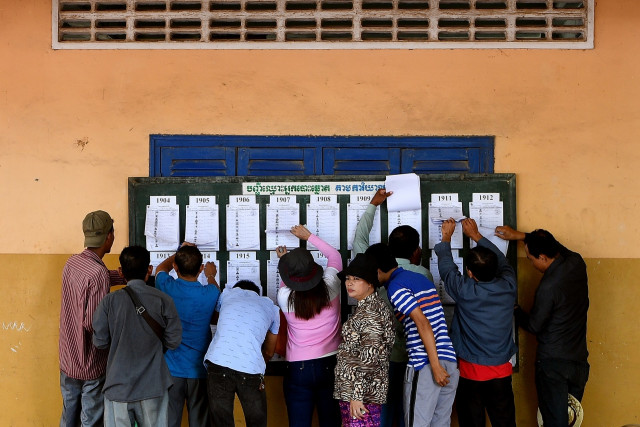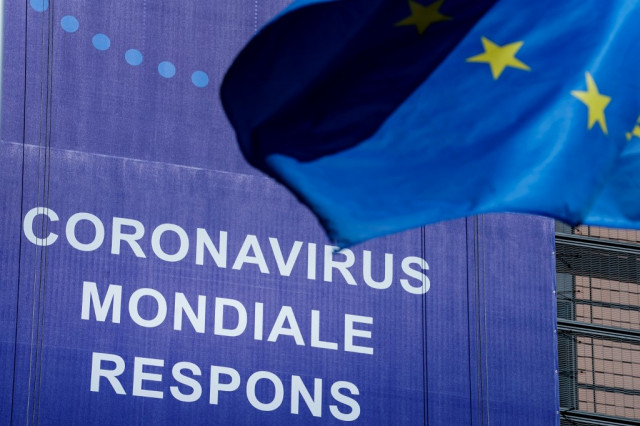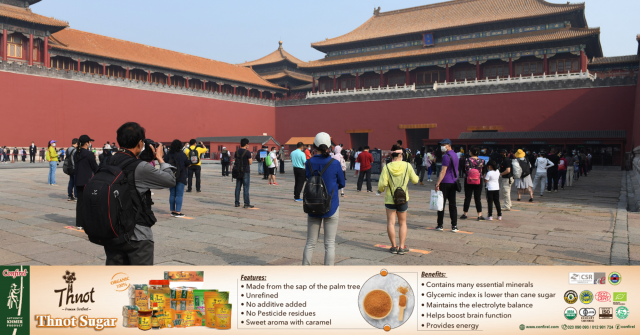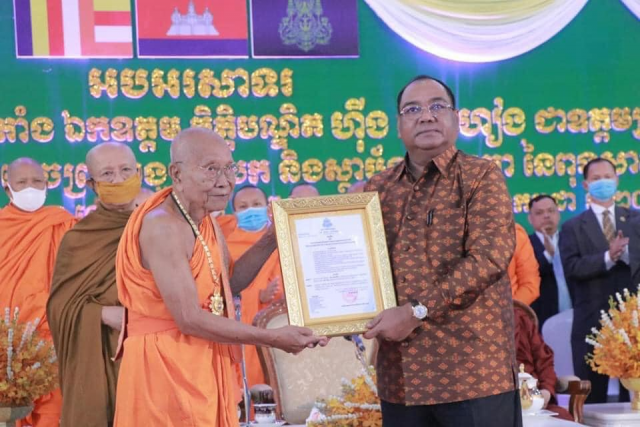Opinion: Youth Participation in Politics Needs a Boost

- By Vann Bunna
- November 1, 2022 7:28 PM
Youth is widely considered a key driving force for a country's development. In the National Policy on Cambodia Youth Development, the Cambodian government recognizes youth as “a key resource and the most valuable for national economic, social, cultural and environmental development and the upholding of peace now and in the future.”
Statistically, according to the government’s census projection report, two thirds of the Cambodian population are age below 35 years old. People aged 15 to 30 are considered to be youth.
Youth constituted 28 per cent of the total population. Cambodia seems fortunate to have a large number of young people who are the potential and dynamic in participating in the country’s social, economic, cultural and political development.
Even though Cambodia has a high number of young people, the low level of youth political participation is alarming. According to the Cambodian Youth Policy Survey report 2022 published by Transparency International Cambodia, Cambodian youth are gradually becoming less interested in political participation.
Remarkably, 82 per cent of 1,600 youths surveyed across the country revealed that they were either not interested or only slightly interested in politics. Even worse, only a small percentage of youth discussed politics with family members or friends. Seventy-six per cent of young Cambodians surveyed indicated they rarely or never talked about political affairs at home or with friends.
Unfavourable political conditions and lack of a mechanism for participation, lack of knowledge about participation, and lack of capacity and resources to participate in politics have been identified as the main issues that significantly discourage youth to engage in political affairs.
In this light, the lack of youth's political engagement would limit youth from playing an important role in enhancing political development. This would give more leverage to politicians to dominate in the political sphere and provide citizens with less influence in the policy-setting process.
Consequently, only a small oligarchy and elite can benefit from these policy-making processes.
As philosopher and political theorist Jean-Jacques Rousseau argued: “Only through the direct and continuous participation of all citizens in political life can the state be bound to the common good.”
The backward tendency of youth’s engagement in political affairs will end up with unfortunate outcomes and have an impact on the country’s development. It will leave politicians alone to decide and set out the future of the nation instead of the people, who are the owners of the country.
As a result, the dream of the Cambodian people to have a democratic, accountable, transparent and responsive government seems remote when politicians and government can do whatever they wish without being kept in check and getting pressure from the people.
As Constitution article 35 fully recognizes the right of citizens to actively engage in the political life of the nation, youth should never be discouraged from using their constitutional rights to meaningfully participate in politics.
Understandably, the shrinking of democratic and human rights space and facing economic hardship situation have been major barriers for youth to energetically engage in political affairs. Nevertheless, there is still room for youth to keep their aspiration and be optimistic to navigate those challenges to participate in the political life of the nation and to build their dream society. To restore and promote youth’s political engagement, all relevant stakeholders have unique and important roles to play.
As the limitation of knowledge has been found to be the main reason for distracting youth from engaging in politics, youth should be encouraged to enhance and depends on their knowledge of politics, democracy and human rights.
To be a real and significant actor in democracy, the people must be knowledgeable about the government system and their own power. They must also give more value to democracy and human rights as stated in the Constitution. Without so doing, people are just tools for dishonest politicians to play for their political interests.
To build knowledge of political and civil participation besides the formational education system, youth should enthusiastically make it through the informal education system of capacity building and training programs with NGOs such as Transparency International Cambodia, Youth Resource Development Program and the Youth Network Association.
In an effort to support youth participation in politics, Civil Society Organizations (CSOs) have a vital role to play in building and enlarging mechanisms that makes youth more accessible. In so doing, CSOs should inclusively create more intensive training programs to further equip youth with knowledge on democracy, rule of law, good governance, accountable government, human rights, and peace.
Moreover, they further provide youth with technical and financial support by creating youth clubs, student councils, youth parliaments and other relevant youth-led initiatives. More importantly, CSOs should move beyond funding competition issues that would further accelerate conflict among the CSOs.
They should not treat youth as their clients but as development partners. No matter whatever the mechanisms or organizations youth involve with unless it could benefit to youth and develop the youth's capacity and skills for the betterment of the country, youth should be encouraged and supported to take part.
In standing with CSOs, development partners have critical roles in promoting youth’s political and civil engagement, paving the way to restore democracy and human rights in Cambodia.
By continuing and enhancing aid to CSOs, community-based organizations (CBOs), and youth-led initiatives, the free world countries, especially the US and the EU members not only help to restore and advance youth’s participation in politics but also spread their soft power widely in Cambodia.
Geopolitically speaking, as China’s influence in Cambodia gradually increases, it is important for the US and its allies to balance Chinese presence in the country and the region. Taking this opportunity, democratic countries should keep providing and increasing aid to stakeholders to keep their influence in the country as well as to help promote youth’s political participation for sake of Cambodian development.
Conversely, it is undeniable to talk about the vital role of the Cambodian government. The government should develop an engageable and inclusive environment for young Cambodians to participate in the political affairs of the nation. Youth engagement should be constructively viewed as assets to the Kingdom’s development maneuver, not as a threat to the regime.
Moreover, to improve the favourable environment for youths to engage in the political and civil life of the nation, the government should have a high political commitment to review and revise the existing and draft law legislation that could potentially unfavourable affect youth’s political engagement, namely the Cybercrime draft law, the National Internet Gateway sub-decree and Law on Associations and Non-Governmental Organization.
Furthermore, the government should speed up the adoption of the Law on Access to Information for making an accessible and favourable environment for youth to get more information from the government and public institutions.
Vann Bunna is a co-founder of The Thinker Cambodia and a research fellow of the Cambodian Institute for Cooperation and Peace.















